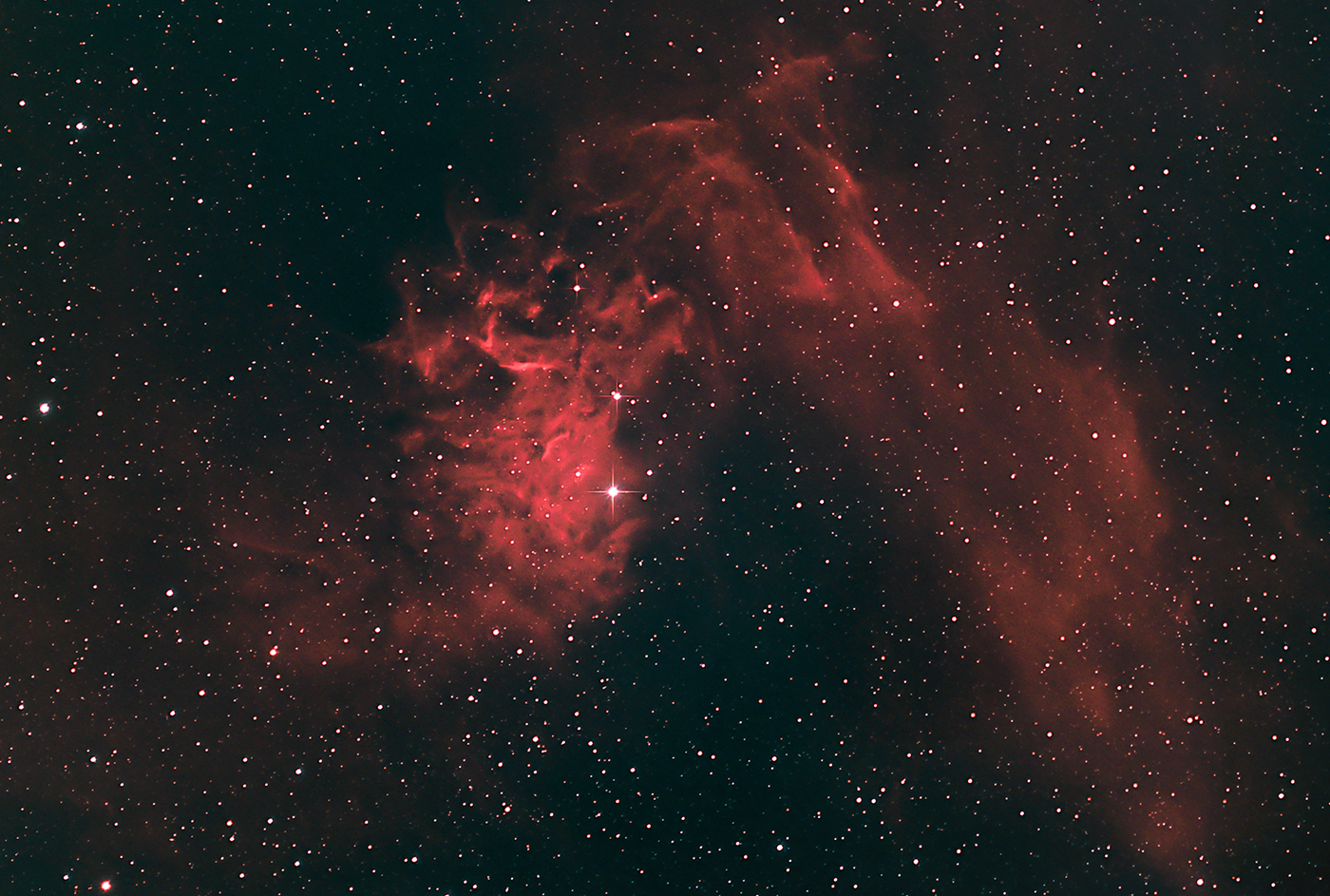
Gear
- Telescope – Meade 70mm Series 6000 Refractor
- Main Camera – ZWO ASI294MC Pro
- Filter –Radian Triad Ultra Quad-Band Narrowband Filter
- Mount – HEQ5
- Guide Scope – ZWO 30mm f/4 mini guide scope
- Guide Camera – ZWO ASI290MM
- Controller – ZWO ASIAir Pro
Acquisition
- 150 Light Images at 180s exposure
- 20 Dark Images
- 20 Bias Images
- 22 Flat Images
The Flaming Star Nebula. SH 2-229. IC 405. Caldwell 31. An emission nebula lit finely by the AE Aurigae star. It sits about 1500 light years away,
When I was learning about astrophotography I kept reading it’s good to capture at minimum 2 hours of total exposure time on a single target. But when you get these awesome new toys it’s easy to get eager and excited. As a result the first few targets I imaged under 2 hours.
The night shooting the Flaming Star Nebula I let it ride as long as I could. I was able to capture 150 light images at 180s exposure each. That’s 7.5 hours of total exposure time. Since it’s winter here in Georgia, the sky gets dark at 6PM. I was able to start imaging at 6:40PM all the way to 4AM. I was very lucky to get that 7.5 hours exposure time on a single target because of the limited sky view I have from my backyard. Damn trees. At some point I’m bringing a chain saw into action.
The result of the 150 images stacked is pretty amazing. I love the smokey, flamey look this has. Add the AE Aurigae and the The Flaming Star Nebula name makes perfect sense. I love the details I was able to capture above.
I do wonder if my results would differ if I took 90 light images at 300s exposure instead. With the Radian Triad Ultra I would think the waves would come in greater detail. Hopefully I can grab that many and do a comparison.

